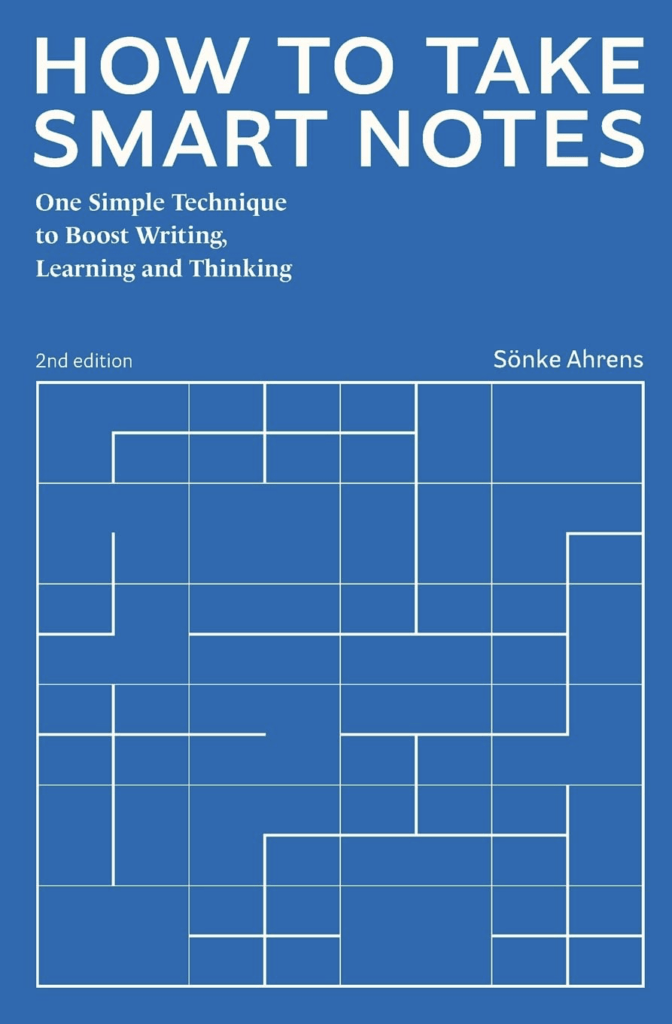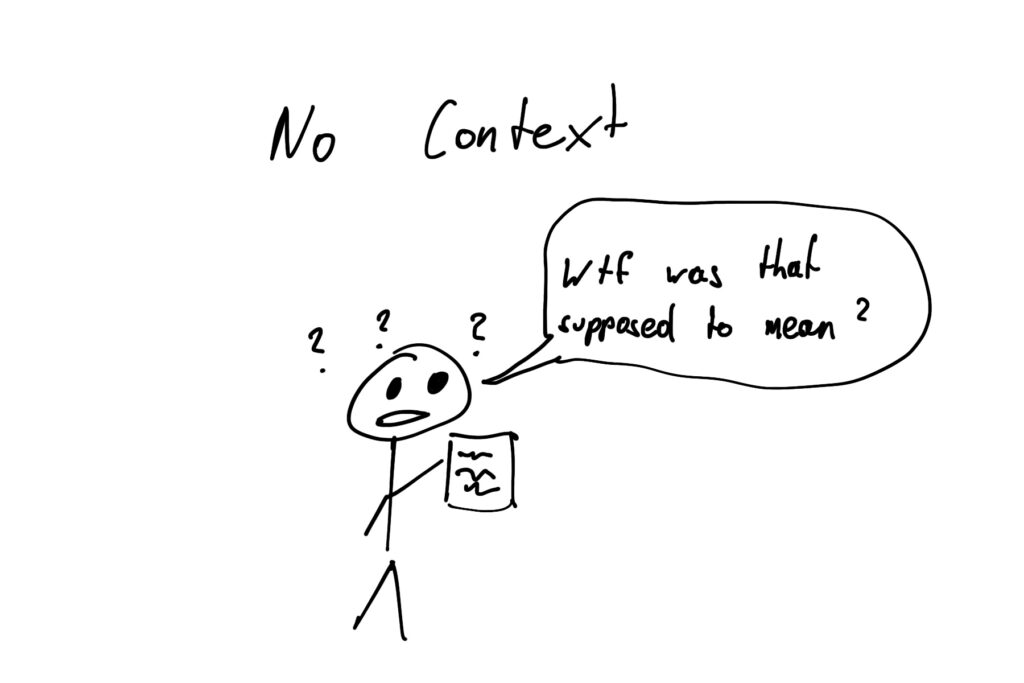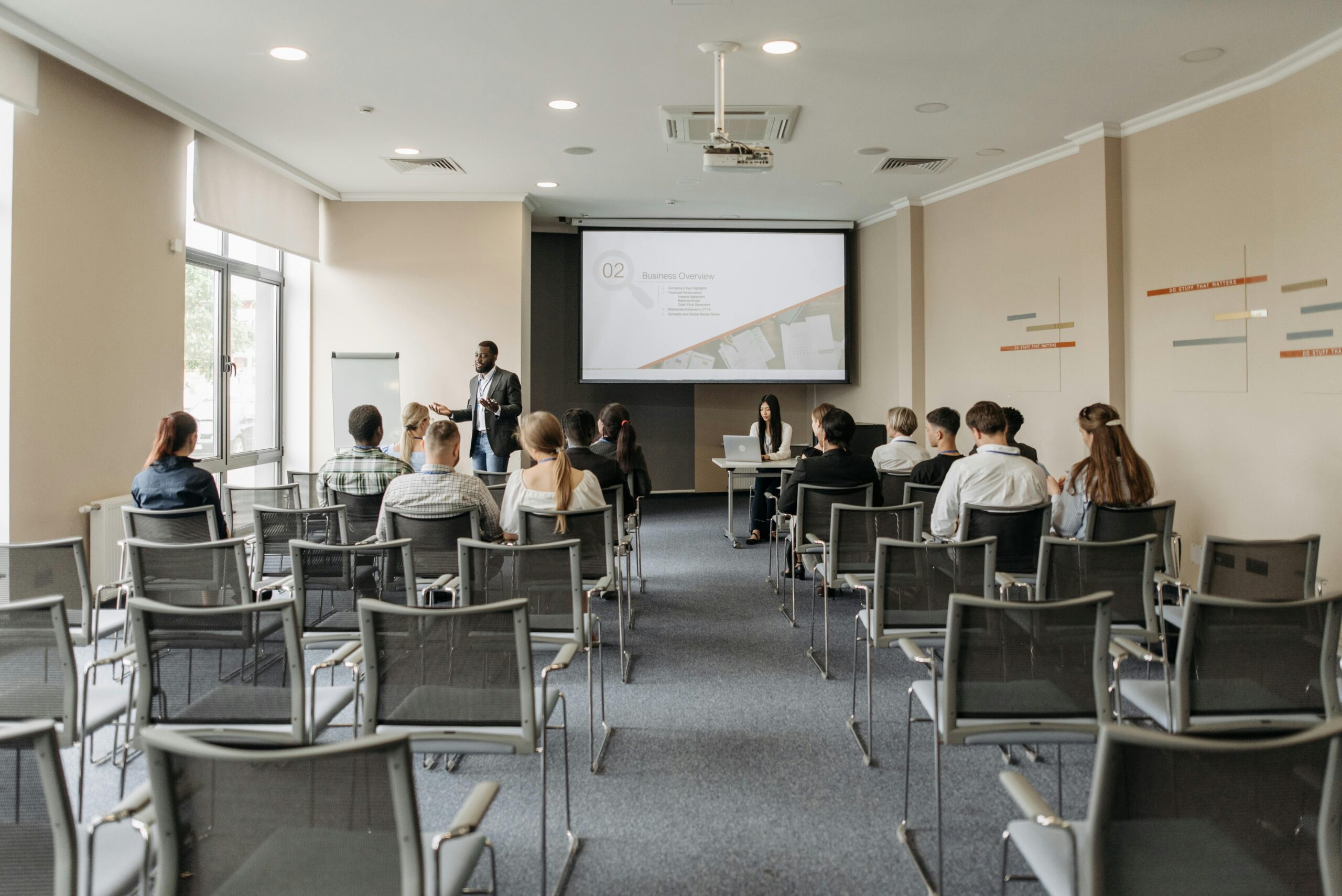An introduction to the Zettelkasten-method
Hello friend,
I hope you enjoy my review of How to Take Smart Notes by Sönke Ahrens and the concepts behind it.

What is it about?
This book is about note-taking and writing with the Zettelkasten-Method, which was originally introduced by Niklas Luhman. Luhman was a highly productive german sociologist who published more than 70 books and around 400 scholarly articles. He took notes on index cards and sorted them into his Zettelkasten (slip-box), in a way that the cards are related to each other.
Who is this book for?
Everybody who takes notes and/or writes can benefit from this book.
What are my main takeaways from the book?
- Take notes in your own words, in a way that you can also understand them without context around them.
- Link your notes together.
- Work with your notes to learn.
About the book.
It is structured in three parts:
- The Introduction
- The Four underlying Principles
- The Six Steps to Successful Writing
Let’s get a small overview of them.
The Introduction
In this section, the author goes into detail about why we need a system like that and how it works:
Our brain isn’t designed to store all the information out there, but it is very good at processing information in front of us. That’s why we need a system where we store information and work with it. That’s the slip-box. If you have a system like that, it is not important to remember everything but to store and work with the information. You don’t have to use an actual slip-box, use whatever system you like working with. There are a ton of options out there. I use Notion for it. It doesn’t have to be over-complicated, as long it is right for you, it is fine.
The Four underlying Principles
Here, the author shows, why writing is important. Writing is thinking, it shows your research and you can only write about something if you have understood it.
Then how should you take your notes? Firstly you take temporary notes, called fleeting notes or literature notes. Just short notes about things you don’t want to forget. These will get processed into permanent notes and then tossed. You can use pen and paper, or any app you like for that. I use a combination of Readwise, Instapaper, and Notion. In the end, everything gets synced to Notion and there I’ll write my permanent notes.
Once you turn your notes into permanent notes, it is important to write them in a way, that even your future self understands them. In the moment of writing, you might have a lot of context around it, but this might not be the case, the next time you look at them.

Another thing that is also important, link them to other notes, to which they are related. This way you can find new connections between your notes and even generate new ideas. And if you want or have to write about something, there is already a lot of material in your slip-box. You never start with a blank page. This gets even easier, the more notes you have in your slip-box.
The Six Steps to Successful Writing
This section then focuses on the writing process itself. Writing notes worthwhile, generating ideas, connecting them. The most important part is that you just do it. Make a habit out of it. Take notes, look through them, transform them into permanent notes and link them together. Have fun doing so and you will learn a lot while working inside your system. It will improve your thinking and your writing. In the end, writing is just combining different notes into a new text.
In Conclusion
I liked the book a lot, it showed me many new concepts I wasn’t aware of and offers very good points. Most of the notes I collected over the years, would be useless if I looked at them today. Which I never did anyway.
This was just a simplified overview of it, the book goes into way more detail. If you are interested in note-taking and writing you should check it out.
You can find Mr. Ahrens on Twitter.


